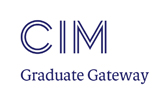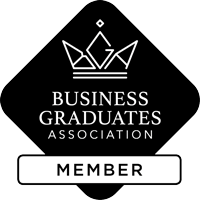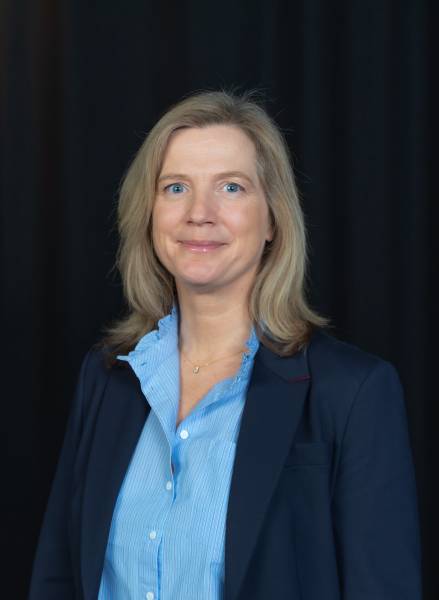Overview
Earn while you learn!
Marketing is disrupted by digital development and transformation which highlights an increasing need for graduates in this area to have an in depth understanding of the role of digital, data analytics and measurement within the marketing function.
The BSc (Hons) Digital Marketing Apprenticeship course has been carefully designed to fit the study of marketing firmly into a social science context and provides core marketing skills such as consumer behaviour, research and digital analytics, creative advertising and media planning, channel and customer experience management and strategic product and brand management. You'll learn to gather relevant data, use digital tools and develop digital-led strategy appropriate for the contemporary marketing world. The academic programme is 3 years, including the End-Point-Assessment (EPA). Full completion of the apprenticeship course including the EPA qualifies you with a BSc (Hons) in Digital Marketing as well as a Digital Marketer Degree Apprenticeship Certificate issued by the IFA (the Institute for Apprenticeships).
After completing this apprenticeship, you will be eligible to apply for professional registration at associate grade for the Chartered Institute of Marketing and the Institute of Direct & Digital Marketing. BCS, The Chartered Institute for IT, will also recognise this apprenticeship for entry onto the register of IT technicians, confirming SFIA level 3 professional competence.
The full apprenticeship standard and assessment plan can be found on the Institute for Apprenticeships.
Apprenticeship Employment Guidelines
Apprenticeship Evidence Pack Guidance
The programme culminates in a work-based project which completes the degree and provides the basis for the End-Point-Assessment (EPA).
Why a Digital Marketing Apprenticeship at LSBU?
- heart
- Happy students: We're top 2 for satisfaction with course in Business, Management and Marketing among London competitors (Guardian University League Tables 2019), 1st for Student's Union amongst UK competitors (NSS, 2020) and 2nd for Learning Resources amongst London competitors.
- check-circle
- The degree that underpins this apprenticeship is built on the foundation of our successful BSc (Hons) Marketing, which is accredited by the Chartered Institute of Marketing (CIM).
- users
- Our unique 'give back' culture means you can build relationships with small and medium enterprises and alumni.
- puzzle-piece
- The programme culminates in a work-based project which completes the degree and provides the basis for the End Point Assessment (EPA).
- puzzle-piece
- 2nd for graduate prospects in Marketing in London (Complete University Guide 2020) and joint 2nd for career prospects amongst London universities (Guardian University League Tables 2020).
| ModeApprenticeship | DurationUp to 34 Months Practical Period & 6 Months EPA (40 months) | Start dateSeptember | Application code5690 | Application method Direct to LSBU |
Location
London South Bank University student union is located at 103 Borough Rd, London SE1 0AA.
If you are visiting our Southwark Campus, you may wish to use our downloadable campus map (PNG File 466 KB). For information on accessibility, see our DisabledGo access guides. See our location page for more details.
Entry Level Requirements
Want to start your course this September? call 0800 923 8888 for entry requirements.
Under UK Government rules, candidates must be employed for a minimum of 30 hours per week and must have the right to live and work in the UK (applies only in England). Candidates cannot be self-employed. The employer must enter into an Apprenticeship Agreement with the student.
All candidates must be employed in a role related to the subject matter of the academic award of the apprenticeship and be sponsored by their employer.
Apprenticeship applicants will have:
- A Level BCC worth 104 UCAS points or:
- BTEC National Diploma DMM worth 112 UCAS points or:
- Access to HE qualifications with 9 Distinctions and 36 Merits or:
- Equivalent Level 3 qualifications worth 112 UCAS points
Applicants must hold 5 GCSEs A-C including Maths and English, or equivalent (reformed GCSEs grade 4 or above).
We welcome equivalent qualifications from around the world. English language qualifications for international students: IELTS score of 6.0 or Cambridge Proficiency or Advanced Grade C.
Applications can only be made through the sponsoring employer. The university will consider all such applications and will have the final decision whether to accept the candidate for entry to the programme.
An apprentice must receive at least the minimum wage rate and work for at least 30 paid hours a week. The apprentice must be paid for time spent training or studying for their qualifications, whether at work or at a learning institution. Please take a look at How to Apply for more information on the requirements of applying for an apprenticeship.
Accreditation of relevant experiential learning will be considered on a case-by-case basis. Typically, candidates will be invited for an interview to explore the nature of their apprenticeship, their existing skills, knowledge and behaviours and their individual learning plan (ILP).
Choose your country
Select country here:
Missing English and Maths qualifications?
If you do not have the required English and Maths qualifications needed to satisfy the entry requirements for this programme, we have courses available at our partner College that you can take to upskill in these areas. Find out more at South Bank College.
Funding
The cost of the apprenticeship is paid fully by the employer (sometimes part funded by the government) through apprenticeship levy. The apprenticeship levy is a pot of money some companies pay into, which all businesses have access to spend on the training costs of apprenticeships. Companies fall into two categories: levy-payers (who pay into the pot) and non-levy payers (who do not). You can find out more in our Levy and Funding section, specifically for employers
The apprentice does not contribute toward the cost of study.
Bands
Apprenticeship standards are all assigned a funding band by the Government – these funding bands are the maximum amount the Government will fund via the levy towards a given apprenticeship standard. There are currently 30 funding bands ranging from £1,000 to £27,000.
Incentives
Employers with less than 50 staff sending an apprentice aged 16-18 will have 100% of the training costs paid by the government. All employers who employ an apprentice aged 16-18 on the first day of teaching will receive a £1,000 incentive from the government. You can find out more in our Levy and Funding section, specifically for employers.
Cost
You can find out the funding band for an Apprenticeship Standard on the Government website. To find out how much we are charging, please get in touch with us at apprenticeships@lsbu.ac.uk
Field trips
Some modules include field with and site visits, which may be residential or outside the United Kingdom, ranging from three to five days. These are organised by the Division and students are required to contribute towards the cost. If there are any field trips or any course visits as part of your course, we will let you know in good time.
Home
| Mode Apprenticeship | Duration Up to 34 Months Practical Period & 6 Months EPA (40 months) | Start date September | Application code 5690 | Application method Direct to LSBU |
An Apprenticeship Standard is comprised of a programme of study, an End Point Assessment and on-the-job learning. This means that in addition to meeting academic requirements, you’ll need to be employed in a role related to your apprenticeship. The process of applying depends on whether you have an employer to sponsor (and support) you.
If you are employed and your employer has confirmed they will support your apprenticeship:
You are welcome to submit an application via our application system. You’ll need to provide details of your employment/employer as part of the application. You’ll also need to ensure you and your employer meet the requirements – find out who can be an apprentice to see if you meet the entry requirements and employer commitments to find out more about your employer’s role.
If you are not employed:
- You will need to find a job role related to the apprenticeship you wish to apply for, with an employer who is happy to support you. If you would like to find an employer to support your apprenticeship with LSBU, you can search which employers are currently advertising Apprenticeships via the National Apprenticeship Service website searching for ‘London South Bank University’ as keywords.
- If there are no search results, this means there are currently no vacancies. We update our vacancies regularly, so please do check back regularly.
- Many employers advertise their apprenticeship vacancies on their websites or via other portals. You could search for ‘find an apprenticeship’ online.
- When you’re ready to apply, see the government's advice on how to write a winning apprenticeship application and make your application.
Further information for apprentices
If you’re a prospective apprentice, you can find out more about who can be an apprentice on our student pages.
Further information for employers
If you’re an employer, you can find information about the employer commitments and further related information on the related pages for business.
See our admissions policy 1.0 MB and complaints policy 516.0 KB.
Prepare to start
There are steps the apprentices, the employer and the University need to complete before you start your course. Take a look at the steps to be completed in the Enrolment section. Employers may also like to look at our steps to offering an apprenticeship.
During the course, you’ll have a chance to develop your communication and presentation skills, creative and advertising management and problem-solving skills, as well as analytical and numerical ability. The course comprises seventeen core modules that cover the areas of consumer behaviour, market research, digital analytics, media planning, (new) product development, brand management, strategic channel management, creative advertising and media planning and digital marketing strategy.
Year 1
- Principles of Marketing
You will learn about marketing concepts and Principles. It will enable you to explain the elements of the marketing mix. It will cover how to apply introductory level marketing theory to a range of practical examples. It will also enable you to explain the basics of marketing analytics, including the impact of data in a contemporary digitalised society. - The LSBU Discovery Project
You will learn how to apply idea generation techniques, and critical thinking to identify key issues and, develop, evaluate, select and communicate solutions to issues within a business project. It will cover key project management techniques and tools such as PID, WBS, Gantt Charts, CPA to a business project. It will enable you to evaluate and reflect upon decisions and actions to respond more effectively to changes in the business environment. The module further aims to enable you to identify, develop and apply effective and appropriate coaching techniques for successful team development and management skills including awareness of personality differences and sensitivity to cultural norms. - Data for Decision Making
You will learn how to prepare numerical data in a variety of graphical forms. It will enable you to assess the various analytical techniques for solving business problems, to demonstrate the importance of stating assumptions. It will cover compiling data using Excel and analysing data in order to develop and test claims. - Marketing in a Digital World
Building on what you learned in Principles of marketing, you’ll be exposed to the key aspects in both theoretical and practical digital marketing. You’ll be introduced to the digital elements in modern marketing techniques which are an essential area to understand in today’s marketplace. You’ll gain an understanding of the tools and techniques necessary to develop a digital marketing tactical plan on which to base further digital development in your second and final years. - Finance and the Economy
You will learn how markets and competitors influence business decisions and performance. It will enable you to apply economic ideas, techniques and theories to understand, analyse and explain business situations. It will cover various tools of financial analysis to assess business performance and make judgements about markets and the use of Excel to create graphs & tables for reporting purposes. - Management and Organisations
You’ll learn the different approaches to organisation and management within the context of the external business environment. It will enable you to apply the key principles of organisational behaviour in the areas of organisational structure, organisational culture, organisational change, work motivation, job satisfaction, psychological contract, working in groups/teams, and leadership. It will also cover the key principles of human resource management in the key functional areas of employee resourcing, development, rewards and relations.
Year 2
- Integrated Contemporary Communications
You’ll examine the role of marketing communications management within the business setting by looking at the wide range of techniques needed to plan, control and evaluate marketing communications objectives. It will equip you with the skills necessary to build an effective integrated communications plan designed to achieve specified objectives. - Understanding the Consumer
Customers are the ultimate asset for businesses – understanding consumer behaviour therefore critical. In this module, you’ll learn about the concepts and theories underpinning consumer behaviour to develop your understanding of the many variables that, through complex interaction, determine B2B buyer behaviour. You’ll examine how consumer behaviour is influenced by individuals' socio-cultural and individual factors to develop your understanding of their impact on a cross range of buyers, both on-line and off-line. - Market Research and Digital Analytics
Data analysis informs marketing strategy and hence is vital for business performance. In this module, you’ll be exposed to a range of digital and off-line data sources, common research designs and analytical tools. This aims to develop familiarity with, and precise understanding of, the most commonly used industry metrics. Using data visualisation software, will enable you to create insight and deliver persuasive communication in a decision context. - Managing the Customer Experience
You’ll be exposed to the importance of customer experience in today’s highly competitive markets. You’ll examine the integral nature of customer experience and customer service within the service sector and wider environment. The aim is to enable you to assess how customer satisfaction and service quality is created and critically evaluate customer experience initiatives which provide a basis for formulating customer experience strategies. - Creative Advertising and Media PlanningEffective media and advertising planning require in-depth knowledge of multi-media communication strategies and an understanding of the key laws of marketing science. You’ll explore the different roles played by advertising and media planners, and creative teams in setting and delivering above the line (ATL) advertising campaign objectives. You’ll gain insight on the role of advertising in changing consumer behaviour, the insight beneath the most potent creative appeals and the media plan necessary to achieve advertising effectiveness.
- Media RelationsMedia relations is central to public relations practice and public relations professionals need to understand both the context in which traditional and digital media channels operate as well as how to work with the media. You’ll explore the role of journalists and non-traditional media influencers such as bloggers and vloggers, how to sell in stories and craft appropriate content, about the importance of newsworthiness, and examine the differing agendas of media channels.
Year 3
- Managing Products and Brands
You’ll be exposed to practical and theoretical concepts related to two of the most important areas of (digital) marketing – product and brand management. You’ll analyse and audit product and brand portfolios using the tools and techniques necessary to develop your ability to make informed strategic decisions relating to new product development, brand creation and portfolio management. - Strategic Market Channels
Market channels are a strategic component of the marketing mix. In this module, you’ll gain an understanding of the key concepts and practices relating to distribution and the strategic supply that underpin effective channel management. You’ll be exposed to the analytical tools and techniques used to evaluate market channels within the context of the digital and omnichannel environment. You’ll examine a variety of factors that determine the efficiency of market channels in meeting customer demand which provides a source of competitive advantage and deliver commercial results to the business. - Marketing and Digital Strategy and Planning
You’ll learn how to apply academic research methodologies for digital and direct strategy formulation and how to conceptualise a research problem contextualised within the literature; and design and plan a methodology to meet the defined research objectives, collect and synthesize data to develop theoretical and managerial implications. It will enable you to execute research using appropriate data collection and analysis techniques to write strategic plans incorporating digital direct and database marketing techniques. It will cover how to develop, implement and manage projects autonomously working to deadlines to prepare written and oral reports in which recommendations are underpinned and justified by data analysis. - Contemporary Issues in Digital Marketing
The digital revolution has not only dramatically changed customer experience; it also offers advanced methods and original vehicles to engage customers and create brand communities. This module enables you to apply both a traditional and digital strategic approach to contemporary marketing planning, integrating digital strategy, models, frameworks and techniques throughout to achieve competitive advantage. The focus is on marketing futures, industry and technological change, convergence of media and the challenges that these issues present for (digital) marketing practitioners. - The Digital Marketing Project
Running across two semesters, you’ll be given the opportunity to explore an area of digital marketing of your choice in more depth. You’ll design and conduct work-based research which challenges – and contributes to – knowledge within the digital marketing field. With the guidance of a supervisor, you’ll manage your own learning as you investigate the implications of theoretical knowledge on managerial practice and describe your findings in the form of a dissertation. This work feeds directly in your apprenticeship End-Point-Assessment (EPA): its findings and recommendations will form the basis of the report and interview to enable successful completion of the Digital Marketer Degree Apprenticeship.
On completion, you’ll be eligible to apply for professional registration at associate grade for the Chartered Institute of Marketing, the Institute of Direct & Digital Marketing, and the BCS, The Chartered Institute for IT. These bodies will also recognise this apprenticeship for entry onto the register of IT technicians confirming SFIA level 3 professional competence. More information can be found by clicking on this link. Additional certificates and accreditation options are available from other institutions including the Chartered Institute of Public Relations and the Institute of Leadership and Management (ILM).
Careers
Employability Service
We are University of the Year for Graduate Employment for the second year in a row - The Times and Sunday Times Good University Guide 2018, 2019.
At LSBU, we want to set you up for a successful career. By completing the apprenticeship route, you’ll have the advantage of having real-world work experience, working in a role related to your area of study. This will give you a competitive edge among other graduates when you complete your apprenticeship standard.
During your studies – and for two years after you graduate – you’ll have access to our Employability Service, who can help you develop your skills through the Careers Gym workshops and presentations. Our JobShop advisers support students and graduates with finding the right job for them.
All the way through the course, employability skills are promoted – with guest speakers from industry, business insights, graduate start-up and entrepreneur schemes. Digital marketers lead on the creation and execution of a digital marketing strategy. They recognise and respond to business opportunities and customer requirements through a range of digital channels (such as social media, websites, email). They actively employ content marketing and campaign management principles, and financial and analytical tools, to deliver successful initiatives that meet the needs and aspirations of their organisation.
Jobs directly related to a degree in Digital Marketing include:
- Digital Marketing Executive/Officer
- Digital Marketing Account Manager
- Digital and Social Media Executive
- Digital Marketing Analyst
- Digital Marketing Campaign Manager
- Online and Digital Marketing Lead
- Online and E-commerce Marketing Specialist
- Social Media Specialist
- Content Marketing Executive
- Pay Per Click Analyst
- Search Engine Optimisation Executive
- Display Advertising Executive
- Digital Producer
- Programmatic Executive
Continuing your studies
When you graduate from this course, you’ll be able to apply for further study at postgraduate level, and the academic strength of this course means that you can also consider entering the field of academic research.
The CIM Graduate Gateway programme will provide our BSc (Hons) Digital Marketing Apprenticeship graduates with an important opportunity to gain a professional qualification alongside their degree.
To be awarded the CIM Certificate in Professional Marketing or Professional Digital Marketing, our Marketing graduates are awarded two exemptions from CIM modules (Marketing and either Integrated Communications or Applied Marketing and Planning Campaigns) and need only pass one CIM elective to gain the CIM Certificate.
Our graduates are also exempted from one CIM module on the CIM Diploma in Professional Marketing or Professional Digital Marketing and therefore only need pass two CIM modules instead of three to gain that higher award.
This course has been developed following extensive consultation with industry practitioners and key marketing recruiters.
Almost all the marketing teaching team have industry experience across a wide range of roles and specialisations including Advertising, PR, Marketing Strategy, B2B Marketing and Digital Communications. Many are still actively involved in working with organisations either via applied marketing research or marketing consultancy.

- Since its introduction, the marketing programme has enjoyed strong links with the Chartered Institute of Marketing (CIM). This award is accredited by the Chartered Institute of Marketing as part of their Dual Award Programme. Only a limited number of universities in the UK hold such accreditation. As a result, our graduates are allowed direct entry with exemptions onto the CIM Professional Postgraduate Diploma in Marketing.
Further Accreditation Opportunities
After completing this apprenticeship, you will be eligible to apply for professional registration at associate grade for the Chartered Institute of Marketing and the Institute of Direct & Digital Marketing. BCS, The Chartered Institute for IT, will also recognise this apprenticeship for entry onto the register of IT technicians, confirming SFIA level 3 professional competence. For more information please follow this link.
Further accreditation – including the Chartered Institute of Public Relations and the Institute of Leadership and Management (ILM) may also be available.
The course enjoys strong real-world applications in a number of ways for example: to help maintain the currency of the course, to support and guide undergraduates, giving guest lectures and working with lecturers to provide live case studies on which assessments are based. All level 5 (second year) modules are explicitly designed to have input from practitioners as indicated by the module titles.
Memberships

LSBU Business School is an esteemed member institution of the Business Graduates Association (BGA), an international membership and quality assurance body of world-leading and high-potential Business Schools who share a commitment for responsible management practices and lifelong learning, and are looking to provide positive impact on their students, communities, and the economy as a whole. BGA is the sister brand to the Association of MBAs (AMBA), the world's impartial authority on postgraduate management education.
As a BGA member institution, students of LSBU Business School are able to access BGA's individual membership, which offers a range of tools and resources designed to support the professional and personal development of business students and graduates, free of charge. This includes CV building services, a job search function, skill assessments, thought-leadership, partner discounts and much more.
Teaching and Assessment
The academic programme is 3 years, including the End-Point-Assessment (EPA).
You’ll complete a total of 17 modules on the programme including a final digital marketing project which, together with your apprenticeship E-Portfolio, form the basis for the integrated End-Point-Assessment (EPA).
Lectures will deliver key topic areas across the academic levels. Guest speakers from business and academia will bring specialist knowledge into the classroom.
Interactive seminars and workshops support the lectures with a strong focus on small group activities to encourage the active participation, develop peer learning, and the sharing of knowledge and support amongst our diverse student body. These sessions aim to encourage your development in the respective topic areas with the application of knowledge to business case studies and practitioner-driven live cases to develop critical evaluation of relevant information and problem-solving skills. In-class debate allows the sharing of ideas amongst peers and the evaluation of opinions within a diverse student body to enable development and evaluation of logical argument.
At Level 4 in particular, support is given to basic cognitive skills development and student research practice via the Management & Organisations module. Research skills are further developed at Levels 5 via coursework application and extensively through live case study analyses at Levels 5 and 6 and the Applied Digital Marketing Project at Level 6.
An integrated formative and summative assessment and feedback process is a key component to your independent acquisition of knowledge and understanding in every module on this course.
The key practical skills are embedded in module delivery and built throughout each level demonstrating progressive development. As you move through the programme your ability to evaluate and synthesise information, and problem-solving skills are developed through application to rather more complex case study problems through which independence of thought and practice are developed.
Developing Your Apprentice E-Portfolio
Part of an apprenticeship pathway is the demonstration that knowledge gained throughout the course has been applied in the workplace. The Digital Marketer Apprenticeship Standard comprises Skills, Knowledge and Behaviours, and it is the responsibility of the apprentice to demonstrate each of these learning outcomes is achieved by providing appropriate workplace evidence.
LSBU provides apprentices with a platform to develop their e-Portfolio Apprentices receive a general introductory training on what, where and when to log, and what is considered appropriate evidence. Further 1-2-1 training sessions are frequently available offering continuous end-to-end support.
Apprentices will be asked to log university attendance, effort put in working towards assignments (summative and ideally also formative) and time spent on applying the gained knowledge in the workplace all of which in need of supporting evidence (i.e. documents, etc.).
Developing this e-portfolio is your responsibility and it is a key requirement to be allowed to take your End-Point-Assessment (EPA). In addition to our offering relating to continuous e-portfolio support and guidance mentioned above, we developed a task-based approach for developing an apprenticeship e-portfolio which effectively reduces the number of logs required to two per semester. The aim is to monitor apprentices’ progress (academic and in the workplace) more frequently and in detail thereby encouraging a step-by-step approach of e-portfolio development.
End-Point-Assessment (EPA)
The Digital Marketer Degree Apprenticeship includes the successful completion of the integrated End-Point-Assessment (EPA). Its requirements are detailed by the Institute for Apprenticeship & Technical Education (IFA) standard with the Reference No. ST0481.
The Digital Marketer EPA has two parts:
- Part 1: Reflective report on the digital marketing work-based project (2,000 words) and presentation of the report (30 minutes)
- Part 2: Interview covering the digital marketing work-based project and prior reflective report (1 hour and 15 minutes +/- 10%)
Virtual Learning Environment
Digital technology is used to increase academic support for students and improve the efficiency of the teaching and assessment processes - eventually to transform student learning so that the student experience becomes truly ‘blended’ and extends well beyond the use of the VLE as merely a document repository.
Personal Tutoring
As an undergraduate student in the Business School, your personal development and wellbeing is very important to us, so we have developed a personal tutoring system that is tailored to your individual and group needs.
Firstly, you will be allocated a personal tutor who will be available to you on a 1:1 basis as well as facilitating group personal tutoring sessions which will be designed to enhance your academic and personal development within your degree programme.
In addition to an allocated personal tutor, there will also be a personal tutor available ‘on call’ in a designated room, called ‘Talk’, for confidential 1-2-1 pastoral care meetings every day of the academic semester from 9am to 8pm. This personal tutor can be seen by appointment or within a few minutes in order to assist you with any concerns that you may have.
Our personal tutoring motto is that we want you to "Achieve, Succeed & Excel".
Coaching
Students in their first year of an undergraduate degree will also benefit from our BE programme. This programme is a proactive approach to student development that draws out our students' potential through a process of self-analysis, reflection, planning and action, enabling students to discover and decide upon their required needs.
People profiles
Register your interest
Apprentice Guide
Download our guideContact information
Course Enquiries - UK
Tel: 0207 815 7500






